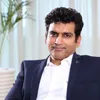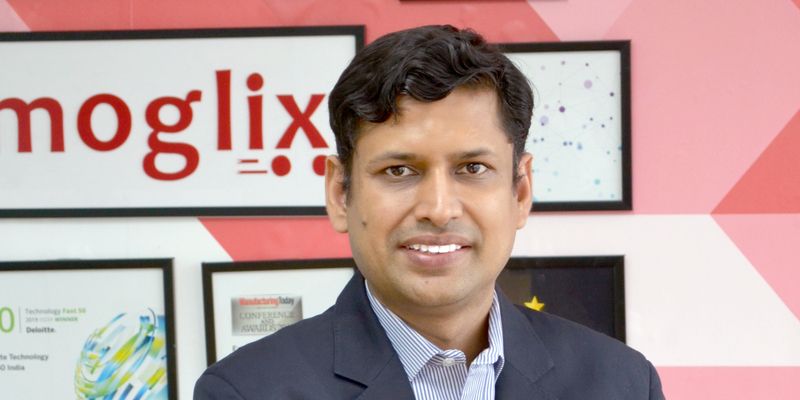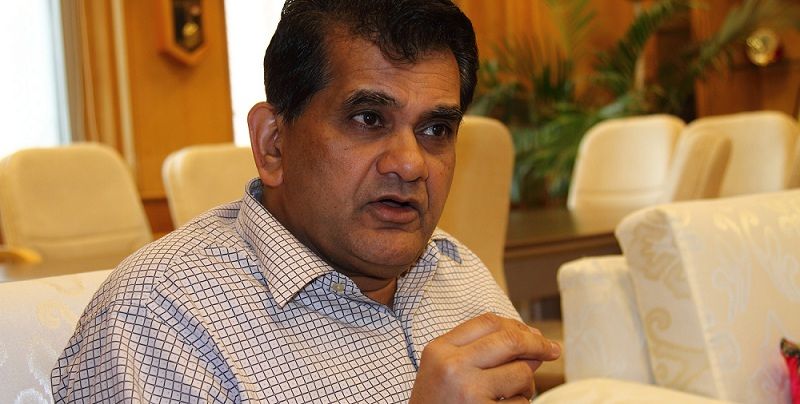[YS Learn] India is now exporting ideas. When we meet companies in SE Asia, they say they are the ‘Udaan’ - Prosus Ventures
In a conversation with YourStory, Larry Illg, CEO, Prosus Ventures and Ashutosh Sharma, India Head, Investment, Prosus, spoke about the roadmap and plans for investment in India.
Prosus (previously Naspers), is a global internet group and one of the largest technology investors in the world. The late stage investor has been a part of the Indian startup ecosystem for 10 years now.
Some of its India investments include the ecommerce giant Flipkart, fintech and payments company of Prosus - PayU, edtech startup , and .
Larry Illg, CEO, Prosus Ventures and Ashutosh Sharma, India Head, Investment, Prosus Ventures, in a conversation with YourStory, spoke about how this year has been for Prosus Ventures, and their plans for the region.
Edited excerpts of the interaction:
YourStory (YS)- Can you tell us how these eight months have been for Prosus?
Larry Illg (LI) - Once we got past the initial shock and surprise, we looked closely at the sectors we are involved in, and I can’t imagine a busier time in my seven years. There were general tailwinds for commerce, edtech, hyperlocal etc. It felt like a hop in a time machine and we got a view of the world four to five years into the future.
We are seeing many changes in consumer behaviour that is flowing through to our companies, and folks on our team have never really been busier. But at the same time, as an investor, it is the hardest time to invest. It is really hard to decide whether the macro framework and sector, and the behaviour that is changing globally is just a moment in time, or it will carry us forward in the long run.
If you go back to previous crises like the 2008 one, there were a lot of business models like flash fashion, but that was more of a moment in time than a generational shift.
Ashutosh Sharma (AS) - When we were starting out, we were worried about what this would mean for our portfolio companies and what this means for us in terms of new investments that we evaluate.
On both counts, we have been positively surprised. In the initial days, we worked with several of our portfolio companies by helping them steer through the crisis and adding value to the company in terms of policy efforts etc. However, there have been strong tailwinds. For example, Swiggy is now strong, and as for GMV, they are close to where they were pre-covid.
We also were wondering if the video-conferencing ‘Zoom’ style of investing will work, but since we were deeply entrenched in the ecosystem prior to the pandemic, for us it was a move from an offline meeting to on online meeting.
YS: Has there been a change for late-stage investors?
LI - It is never easy. We are often investing behind things that we can see, there is PMF, you get a read on its economics, and the vision that is taking some shape. But the flip side is that there are a lot of sharp elbows chasing these businesses. In the pandemic, there is a tailwind for food, health, education etc.
We are seeing a lot of investors that wouldn't normally play in growth. In many ways, the easiest place for them to start is later stage. Especially when thinking about a specific company, the numbers are clearer, and the investors want exposure in some of these global sectors that are transformed by technology.
For the sectors we invest in we take a long view, especially the geographies where we are present.
We have been investing in India for a long time and we are not tourists. We don’t have to rush into something just out of fear of missing out. We think in terms of decades. We would rather walk away from something now and get to know the team and catch them later in the next round, than rush into something.
AS- Adding to that, while we may be a late-stage investor, we do look at early stages as well. We see a change in both stages. Wherever there was more of a gut call as opposed to a numbers driven call, we have focused on over indexing on references, and talking to people who already knew these founders, and talking to all investors on the cap table. All this is done without lowering the bar.

Ashutosh Sharma, Prosus
YS: How has investing in different markets changed?
LI: We have the benefit of being long term minded. That allows us to think like economists rather than traders. The sectors we talk about are the biggest areas of consumer spending in the world. In most cases, most are yet to be fully transformed by technology, so we take that as part of strategic plans.
Frankly speaking, consumer behaviour changes aren’t determined by investment decisions - we still need food, shelter, etc. So the comfort is that 80 to 90 percent consumers around the world behave the same way. So as an investor, it gives us a pattern recognition on how these things translate.
AS: In the past decade, macro-economic change has been promising. And today in the Indian startup ecosystem, we see maturity across all those facets. The founders and the ideas they are coming with has become sharper. More recently, we have seen founders working on ideas that are solving India specific problems in a specific way, rather than being a clone of successful models in China or the US.
This now attracts a consumer base beyond the top 50 million to 100 million users in India. For example, Meesho is a different kind of social commerce company that you would see in China or the US.
Secondly in terms of ideas, India is now exporting ideas. When we meet companies in Southeast Asia, they say they’re the ‘’ or ‘’ of Southeast Asia.
LI: There are stages of economic growth and development for startups. In stage one, there are companies whose products have probably not come of age in the market. And then there is the second stage, where there are local champions and consumers of that technology and product. India currently is in that stage; we see that for any big sector or opportunity, there is a big local champion.
In stage three, we're starting to see Indian companies figuring out and solving problems in another geography. The ecosystem is just so much stronger today.
People talk about the Silicon Valley, but what makes it that is the ecosystem of universities, companies, legalities and several things that make it easy for companies to arrive and address big consumer needs.
YS: What are the changes investors make during the crisis ?
LI: While we have seen different crises, this crisis feels different. And every crisis, be it local or global, it's kind of unique in its own way. The interesting part now is the kind of companies that emerge from this unique circumstance.
In other cases, new use cases are emerging and great technology companies emerge from it. In 2001, it was Google, and now Netflix has come of age during this crisis. This is the same with eBay. The companies that are already in existence, their product just gets picked up and they get to a scale.
The interesting ones will be the companies that are being founded now. In these times of uncertainty, there are multiple aspects of technology coming together, where we can look back in five years and say, that was a unique market circumstance that created an environment where, scrappy entrepreneurs came and grabbed the moment.
AS - In a lot of ways, the previous crisis was affecting just the top strata of the society, and people who invested in the stock market. But this is all pervasive. This is like a mass experiment that is happening with boundary conditions. This has led to a shift and change in behaviour - how you study, buy, do interviews, transact etc.
The question is how much of this change is going to stick and therefore which industries get benefited disproportionately.
YS: How have founders evolved and grown?
AS: It now is a question of how long the startup ecosystem has been in the picture. For India it has been 15 years, now we are seeing a 2.0 version of Indian entrepreneurs. The first generation came from a Google, or Microsoft or Infosys, but now we are seeing founders who are thinking product first. And many have tried this before - successfully or unsuccessfully, and that has improved their approach and thinking. The support ecosystem has also evolved strongly, this has led to faster maturity.
Today, the founders have also started selling better. It is not that they’re being fake, they’re being genuine. They have learnt to tell a story in an inspiring way to investors, customers, vendors etc. The overall understanding of product, go-to-market, and different channels has improved overtime.
LI: At its core, entrepreneurship is an unstoppable force. Regardless of what is happening around, pure entrepreneurs are going to do what they are meant to do, and solve for a problem they are passionate about. The calibre of leadership teams is getting stronger and better. Five years ago, it would be a first-time entrepreneur and not the highest of the high levels of talent choosing to work in technology. Now it is tied to the evolution of the market. People are choosing to work for technology companies in India, including the ones who want to move from Silicon Valley to India.
YS: What do you look for in a team?
LI: We’re mostly a consumer internet investor, we do have some B2B and enterprise solutions but mainly we look for big areas of consumer spend. We're looking for long term associations - founders we want to spend 10 years or more with, helping them shape their vision and sector.
Are these founders consumer centric? Are they able to balance that with having a good understanding of how consumers and industries work? There's nothing quite like the passion of a founder who is chasing a big vision.
Founders need to play the long game. Many times the sector may not be in our immediate focus but since we are looking at the longterm, sometimes we get back and say we got it wrong. And if the founders have exhibited the right kind of behaviours, and can explain their choices well, then we can always meet again.
AS: Technology has made several things possible. Twenty years ago, there’s no way that a kid in a Tier 3 town in India will have a similar kind of education as an affluent kid in Bangalore, but now it is possible. Founders need to have the passion to keep them going through their ups and downs. Unflinching integrity is another important factor. And it is all about relationships.
A founder will stop doing the heavy lifting and their job will be to sort of sit back and maintain all the relationships.
YS: What advice would you give founders?
AS: Consolidate. Try to find more and better ways to expose more and more people to your product. And drive value in that way. If you are facing headwinds - put your head down, and focus on areas you haven’t been able to invest time in like product, roadmap, and 12-month plans.
LI: Customer focus is always job number one. And it doesn't mean letting the customers dictate your product roadmap but understanding their problems is important.
Edited by Anju Narayanan






![[YS Learn] India is now exporting ideas. When we meet companies in SE Asia, they say they are the ‘Udaan’ - Prosus Ventures](https://images.yourstory.com/cs/2/a9efa9c02dd911e9adc52d913c55075e/oie6bne0dBigWSx-1606912996565.jpg?mode=crop&crop=faces&ar=2:1?width=3840&q=75)





![[Funding alert] BAce Capital leads $7.5M Series B round in Lido Learning](https://images.yourstory.com/cs/2/730b50702d6c11e9aa979329348d4c3e/Image31sk-1585233224215.jpg)


